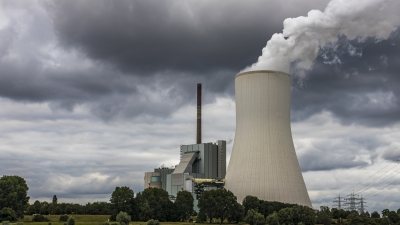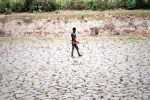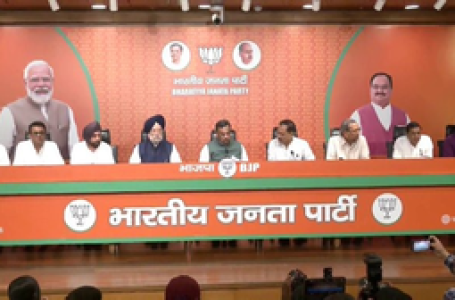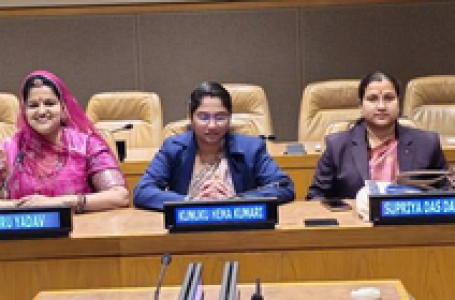
By Sabeel Ahmed
The Russian invasion of Ukraine has once again diverted the attention of the developed world from climate change. The recently concluded G7 Summit in Schloss Elmau, Germany is the latest manifestation. When the leaders of the G7 nations met in Germany, the discussions and the statements released during the Summit clearly reflected that the “unjustifiable war of aggression against Ukraine” and the consequent energy and food security crisis has led to compromises on the issue of climate change.
The compromise on the climate agenda was slammed by environmental groups. Campaigners, including members of the Fridays For Future youth movement inspired by Swedish climate activist Greta Thunberg, said the leaders had not gone far enough in curbing the use of fossil fuels. Many climate activists had called out the G7 countries to stay focused on climate change goals despite the war, as some European Union countries turned back to dirtier coal to meet their energy demand after a drop in natural gas flows from Russia because of sanctions.
In 2021, the European Union imported 155 billion cubic metres of natural gas from Russia, accounting for around 45% of EU gas imports and close to 40% of its total gas consumption. As the West imposed heavy sanctions on Russian oil and natural gas imports––which were also reiterated in the G7 Summit––Europe has been forced by circumstances to return to the use of coal for power generation.
Natural Gas is considered a relatively much cleaner source of power generation than coal. Burning natural gas produces about half as much CO2 as coal to produce the same amount of energy. However, burning of natural gas leads to methane emissions which are much more potent in warming the planet but methane sticks around in the atmosphere for much less time than CO2—an average of nine years, compared to CO2’s hundreds. Because of its characteristics, natural gas has often been touted as a “bridge fuel” to facilitate the transition to a carbon-neutral energy future.
In recent years the dependence of Europe on natural gas was steadily growing as it began to phase out coal. For instance, according to reports published a few weeks before Russia started its war in Ukraine, it was predicted that the UK’s reliance on natural gas imports will increase by almost 70 percent by 2030.
Now when the G7 wishes to phase out its dependency on Russian energy, it has to bite the bullet. The war has forced the G7 nations to water down their earlier commitments made by energy, climate and environment ministers of the group in May to end international public finance for fossil fuels by the end of this year. The G7 communique added loopholes to its commitment on ending “new direct public support for the international unabated fossil fuel energy sector by the end of 2022” saying that “with a view to accelerating the phase out of our dependency on Russian energy … investment in this sector[LNG] is necessary” and that “publicly supported investment in the gas sector can be appropriate as a temporary response”. Thus, on the pretext of Russian invasion, Europe is likely to continue the use of natural gas.
Soon after the G7 Summit, Japan claimed it could continue financing upstream oil and gas projects despite the G7 pledge, and Germany’s Chancellor Scholz stated that Germany wants to “intensively” pursue gas projects in Senegal. Interestingly, Europe is eying for increasing supply of natural gas from North African countries like Algeria, Libya, Egypt and Morocco which already makes significant contributions to its gas demands. Critics believe that such initiatives mean a backsliding on the issue of climate change.
At the very outset of the G7 communique, the member nations have reaffirmed unwavering commitment to the Paris Agreement. It further highlights the urgency to “reduce global greenhouse gas emissions by around 43 per cent by 2030, relative to the 2019 level, in light of the latest findings of the IPCC, in order to limit global warming to 1.5 °C”. How exactly would that be done? The G7 failed to provide credible details.
On the question of return to use of coal in Europe which is now replacing natural gas because of sanctions on Russia, the G7 failed to chalk out any strategy on this issue and only said “we commit to prioritising concrete and timely steps towards the goal of accelerating phase-out of domestic unabated coal power generation”.
Clearly, the commitments that were made were also contradictory in nature. How would the countries cut down on emissions by providing exceptions to the use of natural gas?
In fact, it has been realised that natural gas is actually dirtier than scientists used to think earlier (Natural gas is a much ‘dirtier’ energy source than we thought, National Geographic). Natural gas is a cleaner fuel and not a clean fuel. Moreover, Europe has spent enough time on the ‘bridge’, it must now move on towards renewables. For instance, Europe has huge potential for wind power in the North Sea. It has become too dangerous to stand on it any further. Returning back to coal would be a retreat on the climate front of the Russian-Ukraine war. The casualty would be great, the price paid would be heavy for the planet.
—-INDIA NEWS STREAM



















